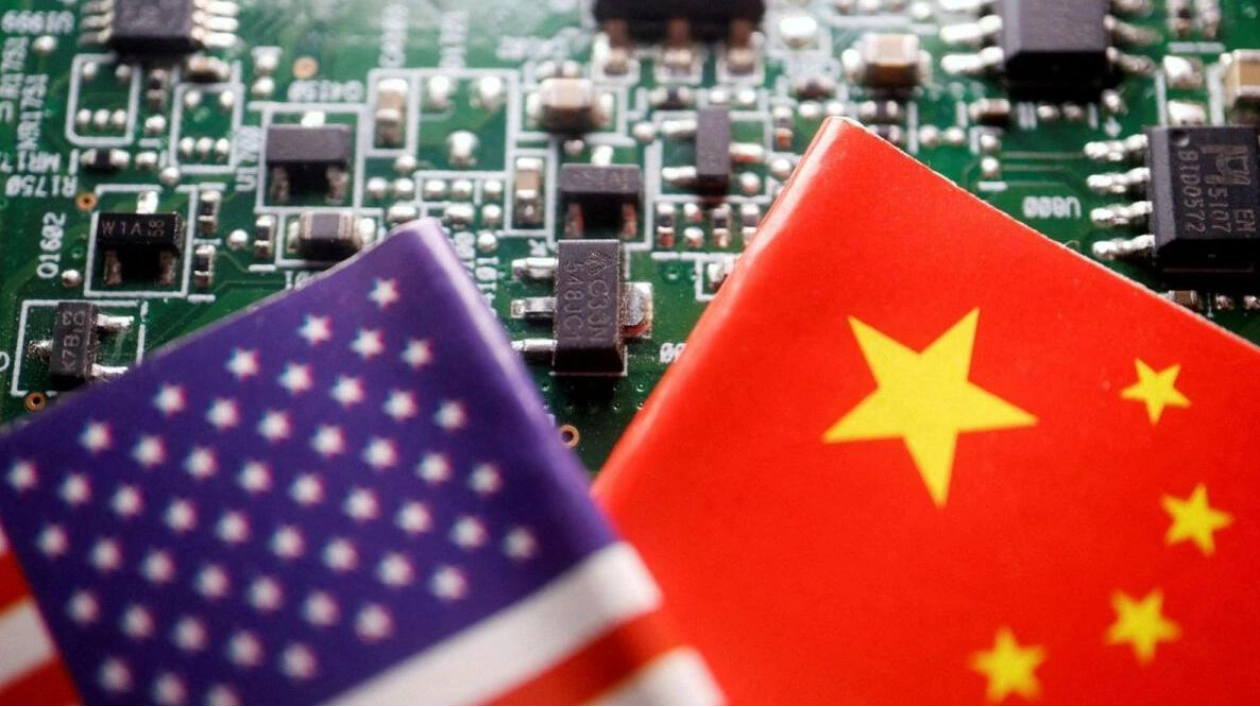The United States has initiated its third major crackdown on China's semiconductor industry in three years, targeting exports to 140 companies, including chip equipment manufacturer Naura Technology Group.
This latest effort aims to hinder Beijing's ambitions in chip manufacturing, affecting Chinese toolmakers like Piotech and SiCarrier Technology with new export restrictions. The measures also target shipments of advanced memory chips and additional chipmaking tools to China.
This move is part of the Biden administration's final large-scale attempt to limit China's access and production of chips that could advance artificial intelligence for military purposes or threaten US national security.
The restrictions come just weeks before the anticipated swearing-in of Republican former president Donald Trump, who is expected to continue many of Biden's stringent policies on China.
The package includes limitations on China-bound shipments of high bandwidth memory (HBM) chips, essential for high-end applications such as AI training, and new curbs on 24 additional chipmaking tools and three software tools. Additionally, it imposes new export restrictions on chipmaking equipment produced in countries like Singapore and Malaysia.
Commerce Secretary Gina Raimondo stated that the action is intended to prevent "China from advancing its domestic semiconductor manufacturing system, which it will use to support its military modernization."
Reuters was the first to report on the involvement of many companies and key details of the plan. The tool controls are expected to impact companies like Lam Research, KLA, and Applied Materials, as well as non-US firms such as Dutch equipment maker ASM International.
Among the Chinese companies facing new restrictions are nearly two dozen semiconductor companies, two investment firms, and over 100 chipmaking tool manufacturers. These include Swaysure Technology Co, SiEn Qingdao, and Shenzhen Pensun Technology Co, which collaborate with Huawei Technologies, once crippled by US sanctions and now central to China's advanced chip production and development.
These companies will be added to the entity list, requiring US suppliers to obtain a special license before shipping to them. Chinese foreign ministry spokesman Lin Jian criticized the US curbs, stating they undermine the international economic trade order and disrupt global supply chains.
China has intensified its efforts to achieve self-sufficiency in the semiconductor sector in recent years, driven by export restrictions from the US and other countries. However, it still lags behind industry leaders like Nvidia in AI chips and ASML in chip equipment.
The US is also set to impose additional restrictions on Semiconductor Manufacturing International, China's largest contract chip manufacturer, which was placed on the Entity List in 2020 but allowed billions of dollars' worth of licenses for shipments.
For the first time, the US will add three investment companies to the entity list: Chinese private equity firm Wise Road Capital, tech firm Wingtech Technology Co, and JAC Capital, due to their role in aiding China's government in acquiring entities with sensitive semiconductor manufacturing capabilities.
Companies seeking licenses to ship to firms on the Entity List generally face denial. The new package also includes an aspect that could harm some US allies by limiting what their companies can ship to China.
The expanded foreign direct product rule will apply to 16 companies on the entity list crucial to China's advanced chipmaking ambitions. It will also reduce to zero the amount of US content that determines when certain foreign items are subject to US control, allowing the US to regulate any item shipped to China from overseas if it contains any US chips.
The new rules were developed after lengthy discussions with Japan and the Netherlands, which, along with the United States, dominate the production of advanced chipmaking equipment.
The United States plans to exempt countries that adopt similar controls. Another rule in the package restricts memory used in AI chips corresponding to "HBM 2" and higher, technology made by South Korea's Samsung and SK Hynix and US-based Micron.
Industry sources expect only Samsung Electronics to be affected, with analysts estimating that Samsung generates about 30% of its HBM chip sales from China.
These latest rules represent the third major package of chip-related export curbs on China adopted under the Biden administration. In October 2022, the United States published sweeping controls on the sale and manufacture of certain high-end chips, considered the most significant shift in its tech policy toward China since the 1990s.
Source link: https://www.khaleejtimes.com






